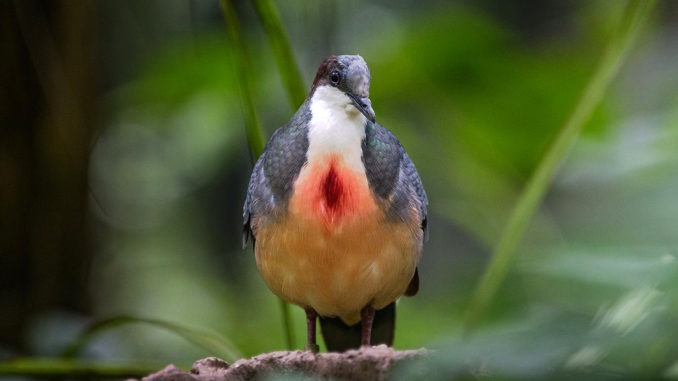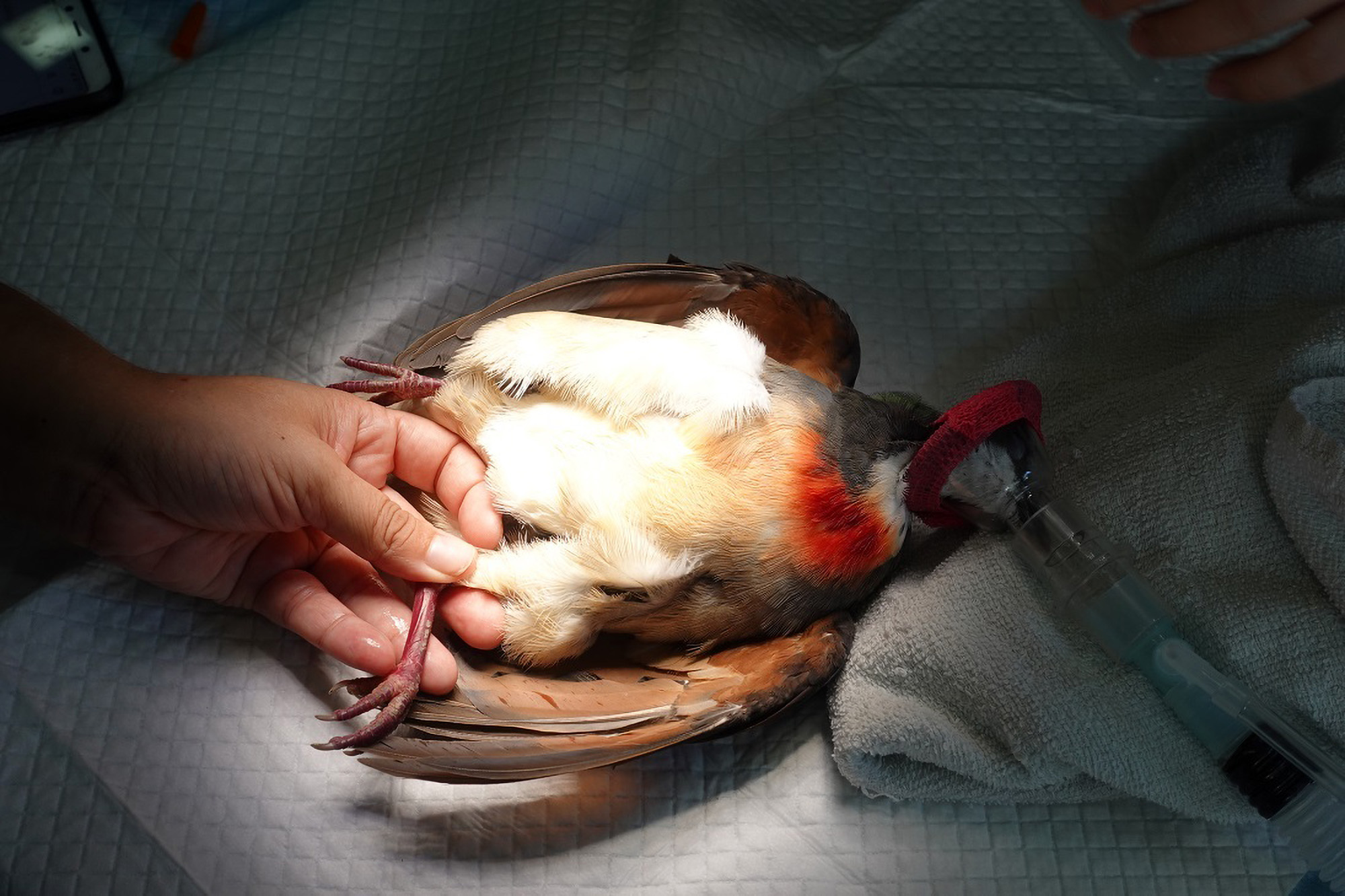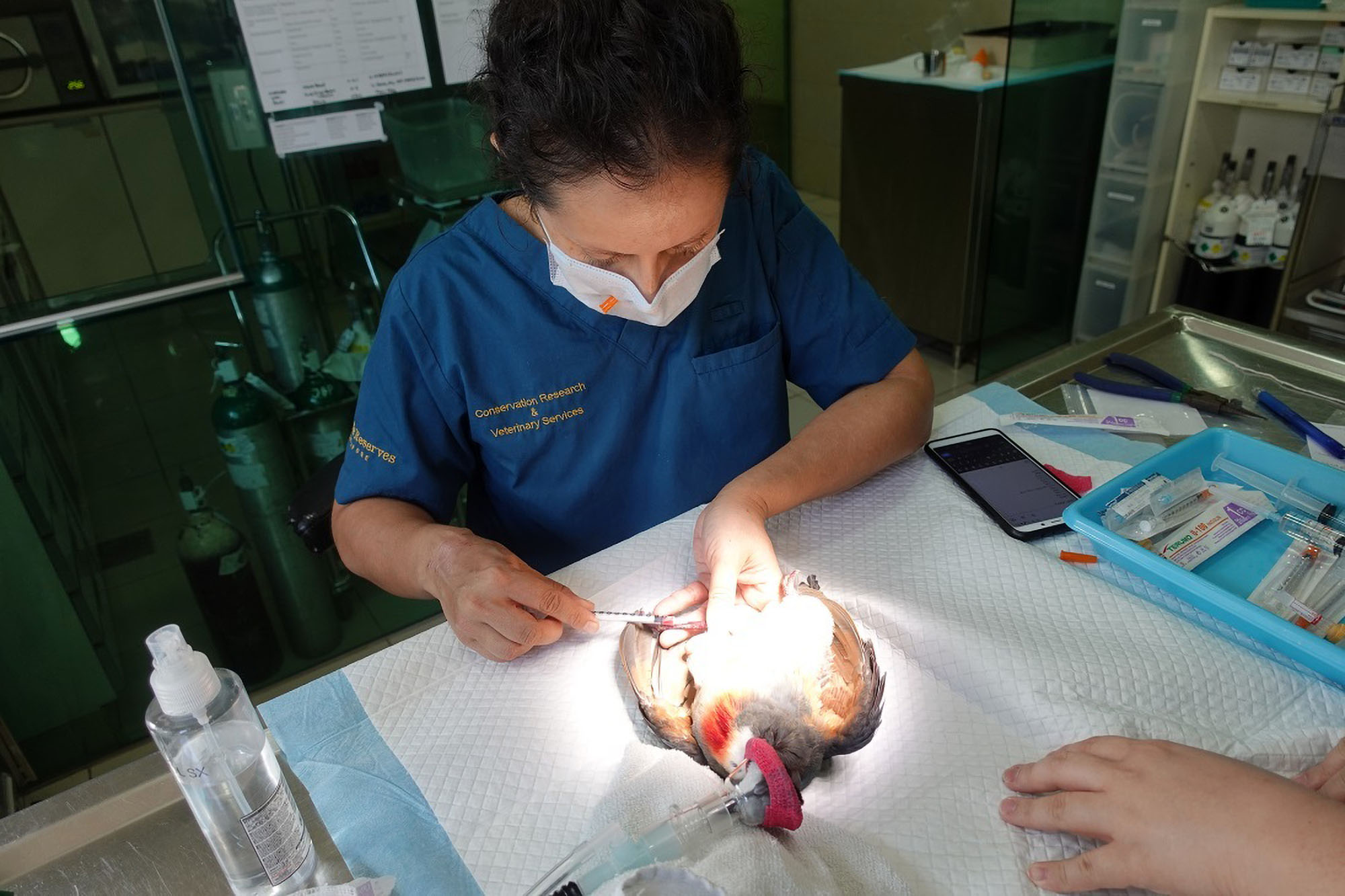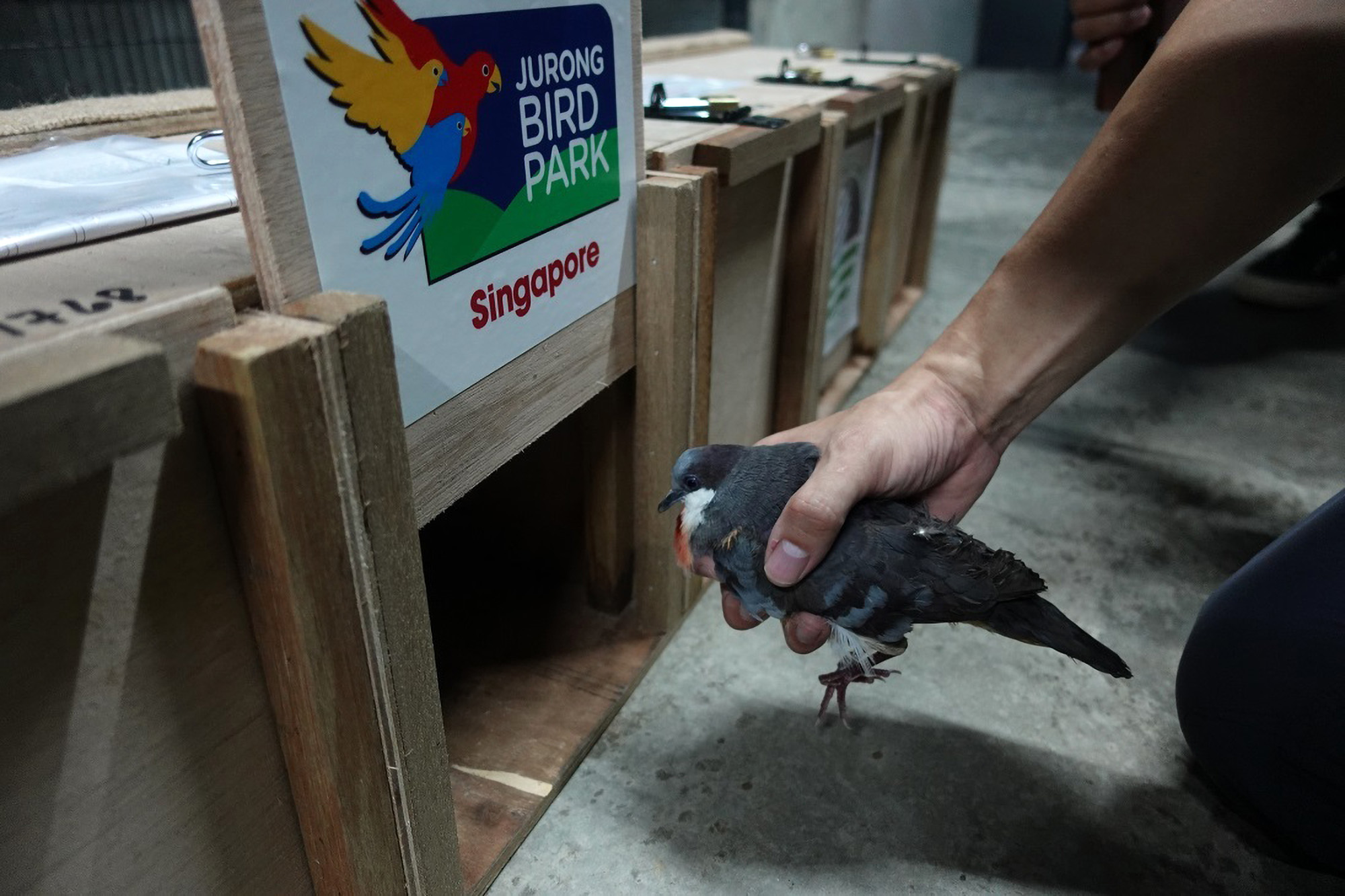
A conservation effort to breed rare birds known as bleeding-heart doves is being hailed as a success.
Ten rare birds that were bred and raised at Jurong Bird Park in Singapore have been sent back to their native Philippines as part of a breeding program that started in 2012. The park says it now has a total of 60 bleeding hearts from a breeding program that began with just the two pairs of the birds.
The 10 birds that were repatriated to the Philippines on Aug. 20 were housed in crates and made the four-hour flight on a transport plane. Prior to that, they had been quarantined for a month and put through a variety of health checks. After another month’s quarantine in their new home, they will be released back into the wild in a protected area on their native Luzon, the largest island in the Philippines.
The handover was made official when the Filipino ambassador to Singapore, Joseph del Mar Yap, received the birds from park officials.
Luis Neves, director of zoology at the Wildlife Reserves Singapore, said: “This repatriation demonstrates the critical role that zoological institutions play in the conservation of threatened species, and we are proud to play our part. Under human care, we provide the animals with a safe environment, alongside high standards of care, welfare and world-class healthcare, to establish and propagate assurance colonies.”



The ultimate goal, Neves adds, is “to be able to help strengthen populations in the wild when there is a need for it. This is just the beginning because we hope there will be many more reintroductions to come.”
The dove – whose name is derived from what appears to be a bleeding red heart on its white breast plumage — is a popular pet, which makes it a target of poachers. Coupled with a loss of habitat, the Luzon dove has a “near-threatened” status in the International Union for Conservation of Nature’s Red List.
The birds avoid human contact and spend most of their time feeding on the ground in the rain forests of central and southern Luzon, as well as in the nearby Polilo Islands in the Philippines. In addition to the Luzon birds sent back to their natural habitat, there are four other species of bleeding-heart doves, three of which are on environmental groups’ “critically endangered” lists. Though widely held to be undergoing a population decrease, their total numbers are not known, in large part because of their aversion to being seen.
(Edited by Matthew Hall and Stephen Gugliociello)
The post Wild at Heart: Rare Doves Headed for Freedom appeared first on Zenger News.
